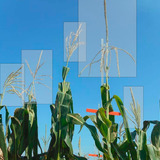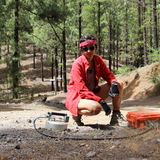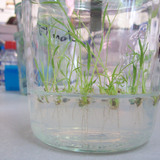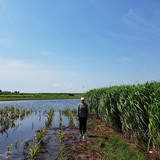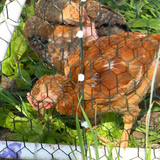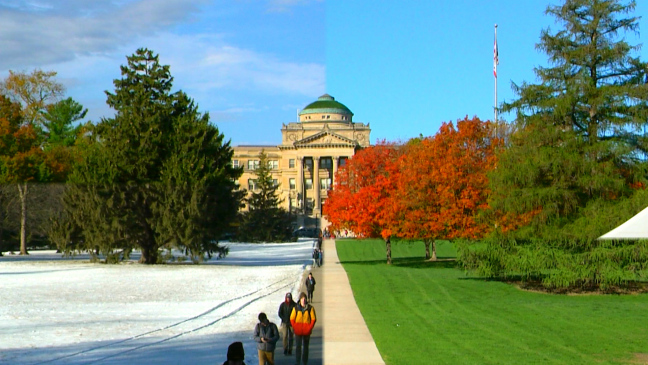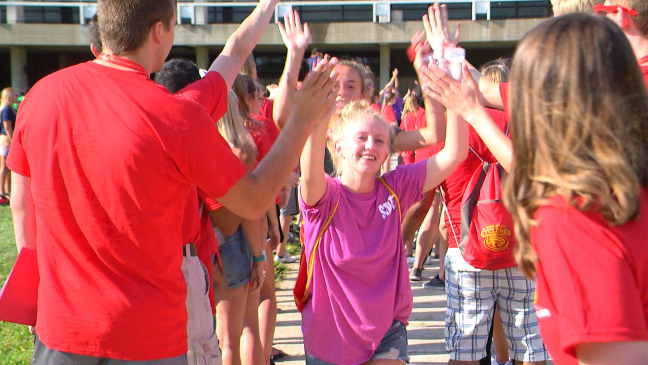News Archive
Friday, August 24 2018
-
Researchers use crowdsourcing to speed up data analysis in corn plants
An interdisciplinary research team at Iowa State University turned to crowdsourcing to help them design a machine-learning algorithm that could speed up the process of breeding new crop varieties with desirable traits. The recently published research focuses on identifying tassels in images of corn plants, but the work could have implications for other crops as well.
-
Predicting, preventing spread of opioid epidemic in rural and micropolitan areas
The rapid increase of opioid overdose deaths in rural communities across the country has far outpaced the overdose rate in urban areas, and an Iowa State University-led research team wants to know why. The researchers’ goal is to identify prevention strategies and use big data to predict which communities may be at risk.
-
Iowa State alumnus returns to tell refugee stories, including his own
An Iowa State University architecture alumnus is returning to campus Sept. 5 to share his story as a Syrian refugee and to discuss his artwork recreating refugees’ stories in suitcases.
-
Former U.S. agriculture secretary and Iowa governor Tom Vilsack will speak at Iowa State
Tom Vilsack is returning to Iowa State University this fall to discuss recent developments in U.S. trade relations and foreign policy and their effect on U.S. agricultural markets and practices.
-
Iowa State sophomore returns from summer on research vessel, atop active volcano
Chanel Vidal, an Iowa State University sophomore in geology, returns to campus after a whirlwind summer working aboard a research vessel in the Atlantic Ocean, studying the Deccan Traps in India and collecting gas samples from an active volcano in the Canary Islands.
-
More women running for political office may hurt chances for down-ballot candidates
Gender stereotypes and biases still influence voters, especially in elections with more than one woman on the ballot. New research from Iowa State University found gender had the greatest effect on down-ballot races, in which women were running for a legislative office and another woman appeared on the ballot for a higher office, such as governor or president.
-
Iowa State University scientist helps to develop rice plants to neutralize HIV transmission
An international research group, which included an ISU scientist, has proven that three proteins that can help prevent the spread of HIV can be expressed in rice plants. Using plants as a production platform could provide a cost-effective means of producing prophylactics, particularly in the developing world.
-
Breaking down the barriers of human-computer communication
Many of us regularly ask our smartphones for directions or to play music without giving much thought to the technology that makes it all possible – we just want a quick, accurate response to our voice commands. With more businesses using artificial intelligence to engage with consumers, the industry is working to make those interactions more human-like. An Iowa State researcher is contributing to that effort by improving how machines, such as smartphones and computers, understand and generate language.
-
Biomedical scientist receives Department of Defense grant to study how metal exposure affects Parkinson’s symptoms
ISU biomedical scientists are examining how exposure to the metals manganese and vanadium may contribute to Parkinson’s disease. The research was supported recently by a nearly $1 million grant from the U.S. Army Medical Research Acquisition Activity.
-
Seismologist works to determine the limit of ground accelerations during earthquakes
Iowa State's Igor Beresnev has worked summers and weekends to find the answer to a very old question in seismology. Yes, he says, there is a limit to ground accelerations during an earthquake.
-
Startup businesses find success, plan for future after CYstarters
CYstarters may have ended, but the work continues for the 15 startup businesses founded by Iowa State University students and recent alumni.
-
Hydration strategy key as high school athletes begin practice
The first week of high school sports practices is a particularly vulnerable time for athletes, says an Iowa State University assistant professor of kinesiology. James Lang studies how environmental stresses, such as heat, affect how our bodies regulate internal temperature. Lang says being proactive about hydration, rather than reactive, is important to keep athletes safe.
-
Grooms named dean of Iowa State veterinary college
Dan Grooms, professor and chair of the Department of Large Animal Clinical Sciences at Michigan State University, has been appointed the next Stephen G. Juelsgaard Dean of the College of Veterinary Medicine at Iowa State University. Grooms is an expert in bovine infectious diseases. He joined Michigan State in 1997 and was promoted to his current position in 2014. He will begin at Iowa State on October 1.
-
Iowa State University scientists examine perennial grass as an option for flood-prone land
Iowa State University researchers have received a grant to study how well the perennial grass miscanthus performs in low-lying areas of agricultural fields that are prone to flooding. The research has the potential to identify more efficient uses of such land while also providing environmental benefits.
-
CYstarters program wraps up, but relationships and work continue
After an intense 10 weeks, members of the 2018 CYstarters cohort are ready to show off their progress. While the summer accelerator is coming to an end, the work will continue for many of the startups.
-
Iowa State University researchers experiment with integrating chickens into vegetable production
ISU researchers are exploring how the integration of chickens into vegetable crop rotations may spark environmental and economic benefits for growers. The research involves experiments at the ISU Horticulture Research Station.
-
Iowa State University will lead new, national institute to fight antimicrobial resistance
Iowa State will lead a national institute to address a global public health concern. The new Institute for Antimicrobial Resistance Research and Education builds upon an existing partnership with the USDA Agricultural Research Service, the University of Nebraska-Lincoln, University of Nebraska Medical Center, the University of Iowa, Mayo Clinic and many other researchers, educators, clinicians and extension personnel. The Association of Public and Land-grant Universities and the Association of American Veterinary Medical Colleges announced the institute, which stems from a recommendation by a joint AAVMC/APLU task force. The Institute for Antimicrobial Resistance Research and Education will be housed at Iowa State and funded by ISU and the University of Nebraska-Lincoln.
-
Despite negative consequences, benevolent sexism helps in search for mate
Some women may like it when a man opens the door on a first date or offers to pay the bill at dinner, while others may find the gestures insulting. New research provides an alternative explanation as to why some women respond positively.
